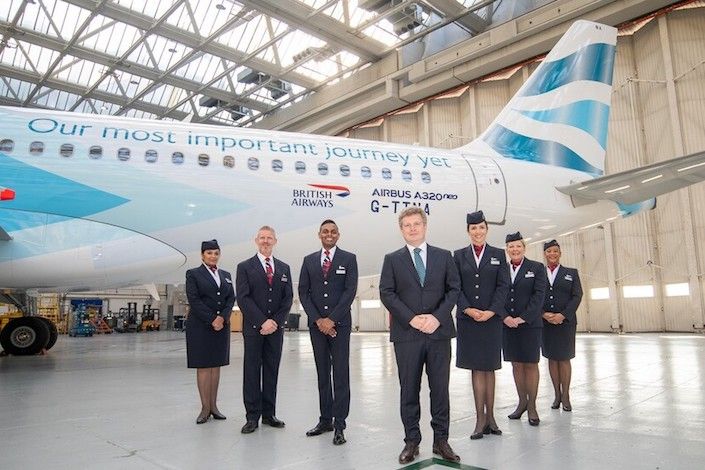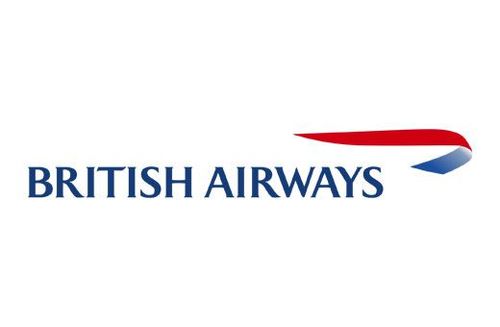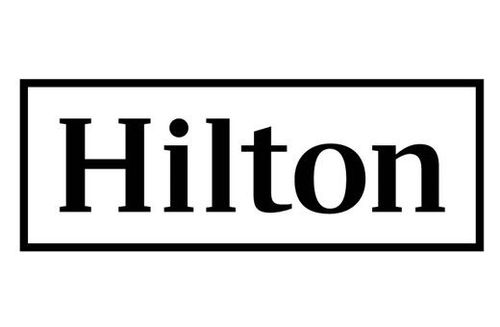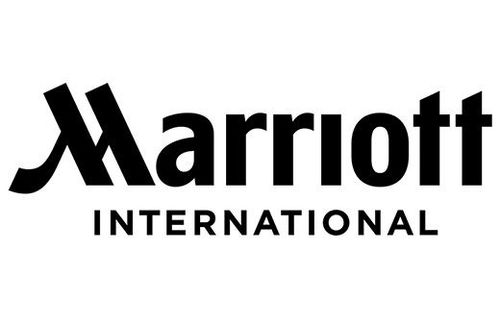Where travel agents earn, learn and save!
News / British Airways puts sustainability at its heart with new BA Better World sustainability programme and aircraft livery plus a collaboration with BP to source sustainable aviation fuel during UK's COP26 conference
British Airways has launched its new BA Better World sustainability programme, describing it as its ‘most important journey yet’

On September 7th, British Airways has launched BA Better World, its new sustainability programme.
The airline said this marked a further commitment to put sustainability at the heart of its business, from reducing emissions and waste and positively contributing to the communities it serves, to creating a great place for people to work in order to build a resilient, responsible business.
At an event at British Airways’ Heathrow engineering base this morning the airline unveiled a new look for one of its most fuel-efficient short-haul aircraft, an A320neo, which it has painted in its new BA Better World sustainability colours as part of a partnership with aircraft manufacturer Airbus.
British Airways has long been leading the aviation industry’s efforts to decarbonize. In 1992 it was the first airline to report its carbon footprint. In 2002 it became the first airline to participate in UK emissions trading. In 2019 British Airways’ parent company IAG became the first airline group in the world to commit to net zero CO2 emissions by 2050, and last year British Airways became the first major airline to voluntarily offset all emissions from its domestic flights.
After unveiling the new aircraft livery, British Airways announced a collaboration with bp, committing to source sustainable aviation fuel with respect to all its flights between London, Glasgow and Edinburgh during the UK’s COP26 climate change summit being held in Glasgow later this year*. Sustainable aviation fuel (SAF) is blended with traditional jet fuel to comply with aviation fuel certification standards. The SAF sourced for the COP26 period provides a lifecycle carbon reduction of up to 80% compared to traditional jet fuel. **
In a UK first, British Airways also announced that from September 7th, its customers can purchase sustainable aviation fuel to reduce their carbon footprint via its not-for-profit organization Pure Leapfrog***. This is in addition to the existing option for customers to offset their emissions.
The collaboration with bp forms part of British Airways’ long-term commitment to the development and use of sustainable aviation fuel. The airline’s parent company, International Airlines Group (IAG), is investing $400m over the next 20 years into the development of SAF, with British Airways forming partnerships with a number of technology and fuel companies to develop SAF plants and purchase the fuel, including with Velocys in the UK and LanzaJet in the US. British Airways, as part of an IAG commitment, recently stated it would power 10 per cent of its fuel needs with SAF by 2030.
Many of the flights between London, Glasgow and Edinburgh during COP26 will be operated by the airline’s new BA Better World aircraft, an Airbus A320neo.
At September 7th event the airline showcased some of the initiatives it has introduced to improve sustainability in the air and on the ground, including switching from diesel to renewably powered electric pushback vehicles and removing weight from its aircraft by introducing lighter seats and trollies, inflight magazines and paper flight manuals. It also outlined its efforts to remove single-use plastic and source more products made from recycled materials, including its First Class duvet and World Traveller Plus amenity kits.
The airline’s new sustainability strategy is not simply focused on the planet, with two further priorities concentrated on its people and driving responsible business. The carrier also announced a new BA Better World Community Fund to further the positive work it does within the UK and global communities it flies to and pledged to take positive action in many other areas of its business.
* British Airways has purchased SAF with respect to all its flights between London City, Gatwick and Heathrow airports and Glasgow and Edinburgh. The fuel will be mixed with traditional jet fuel and blended to meet requisite certification requirements. In the case of the fuel bought for COP26 flights, British Airways has sourced the equivalent amount of SAF to attribute 100% of it for such flights
** This is because the emissions produced from SAF release carbon that has previously already been released into the atmosphere, unlike emissions produced from traditional jet fuel, which release carbon previously locked under the ground
***Customers can now reduce their carbon footprint by purchasing a combination of the benefit of sustainable aviation fuel and carbon reduction projects to reduce their impact on the environment.











